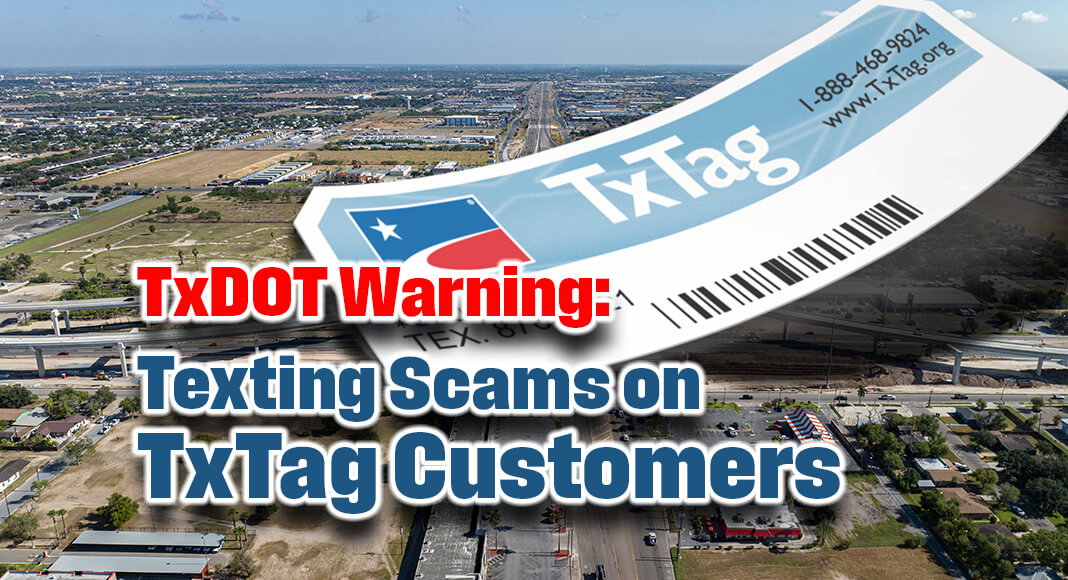
Texas Border Business
AUSTIN – Texting scams are targeting toll customers in Texas saying they’re from TxTag, and the Texas Department of Transportation (TxDOT) is warning everyone to be on the lookout.
There have been multiple reports of TxTag customers receiving text messages claiming to have a balance due or past due. These SMS text phishing scams, also known as smishing, have been occurring since April, but appear to have increased recently. TxDOT is working to have fraudulent websites taken down in hopes of preventing customers from becoming victims.
TxTag takes customer account security and verification very seriously. While TxTag currently communicates with customers via email, text and outbound phone calls, it will not send text messages regarding final payment reminders or past due balances. Any text messages sent to TxTag customers will be sent from 22498.
TxDOT asks TxTag customers to be vigilant of these ongoing scams and contact TxTag Customer Service directly at
or by calling 1-888-468-9824, should customers receive an unsolicited text, email or message purporting to be from TxTag or another toll agency. They should also not click on or open any links.
Emails and texts are sent to the email address and/or the phone number that customers provide in their account. Customers are required to opt into email and/or text notifications in order to receive emails and/or texts from TxTag. If customers are unsure if they are opted into email and/or text notifications, they can log into their TxTag online account or contact TxTag customer service to confirm.
TxTag requires all customers to confirm their account information and verify their identity before providing any information to ensure they are speaking with the correct person on the account.
If a customer receives a phone call, email or text message they believe may be a scam, they should contact TxTag customer service directly at TxTag.org or by calling 1-888-468-9824.
Anyone who believes they have received a fraudulent text can file a complaint with the Federal Bureau of Investigation’s (FBI) Internet Crime Complaint Center (IC3) at www.ic3.gov.
The FBI posted more information on this scam















